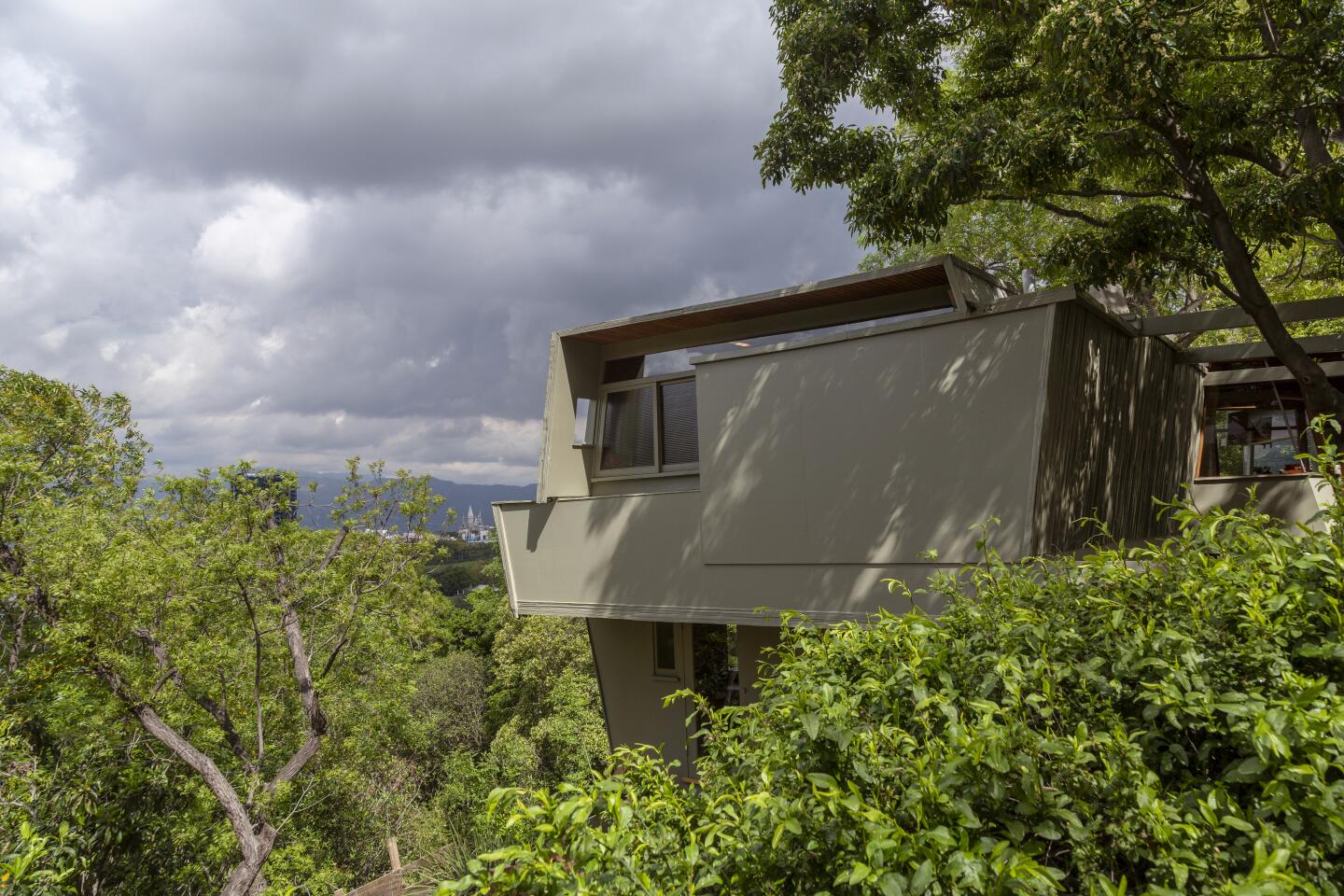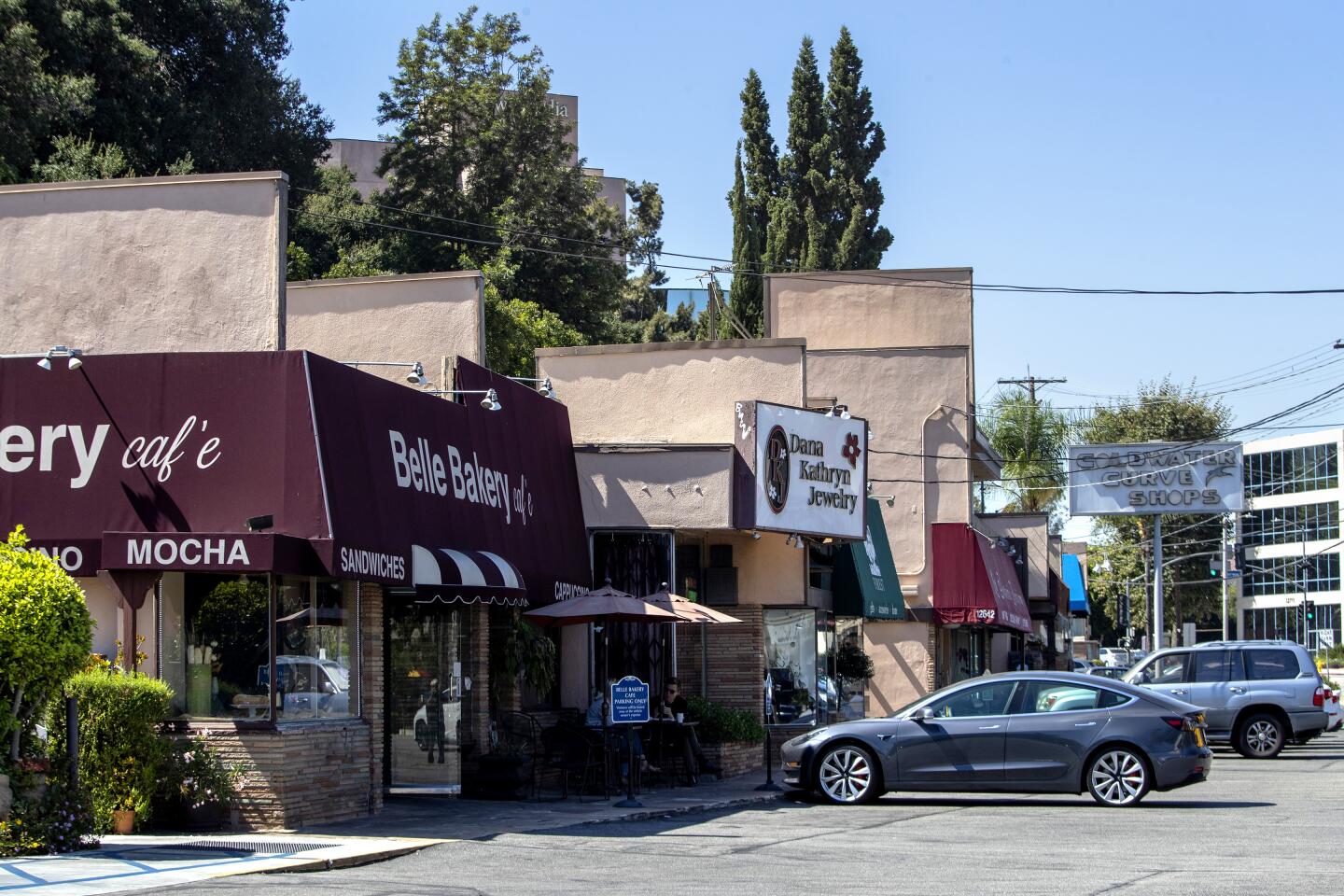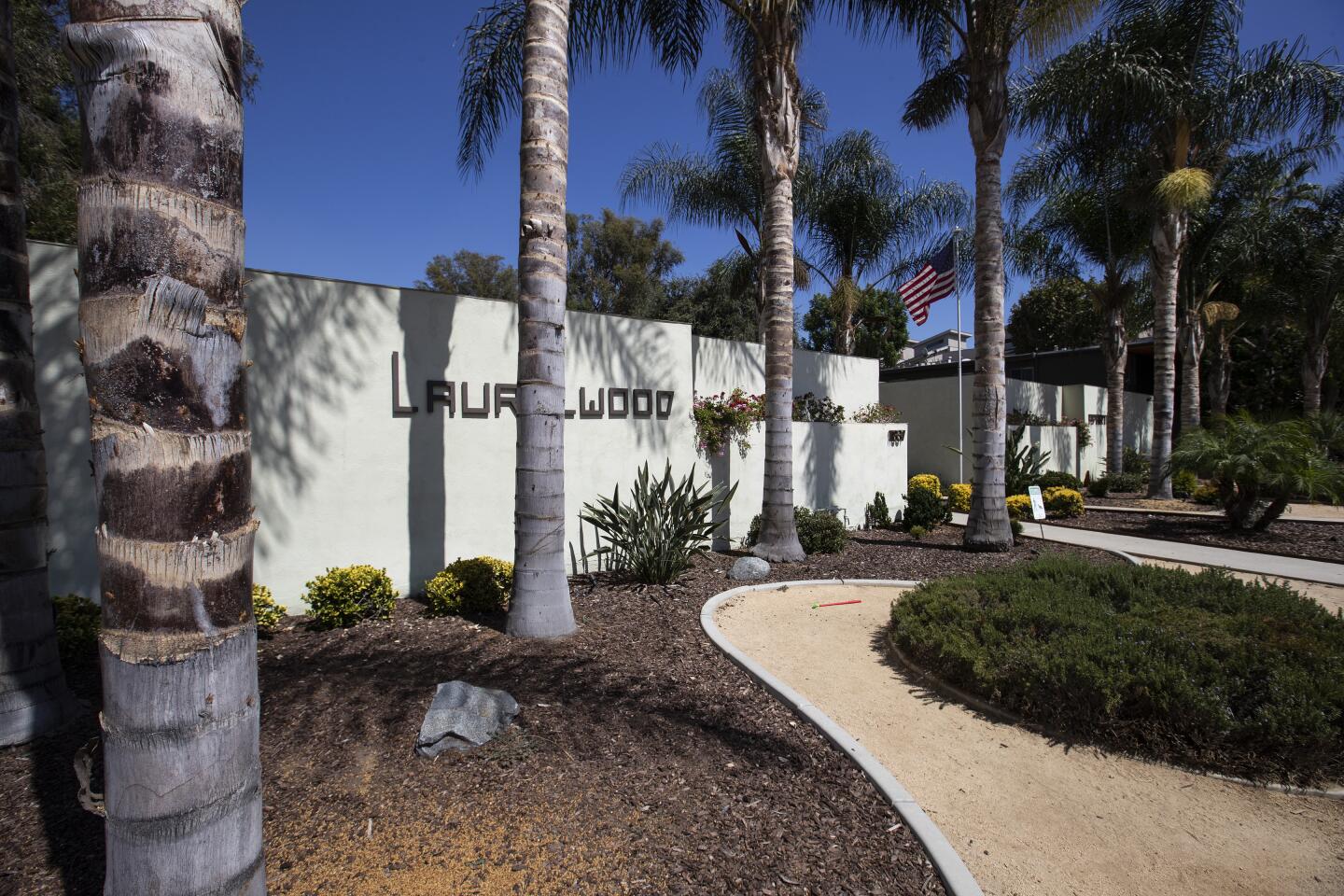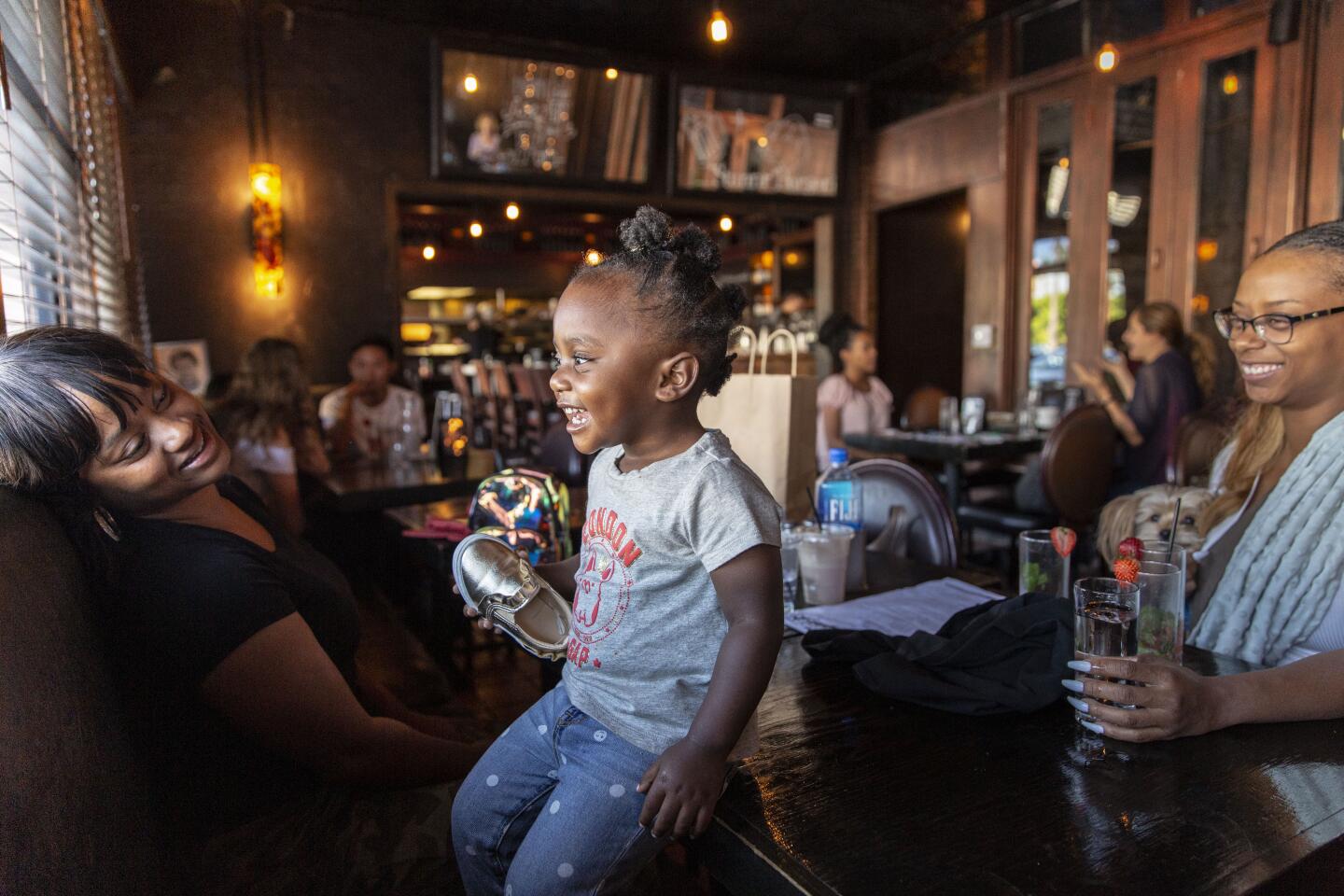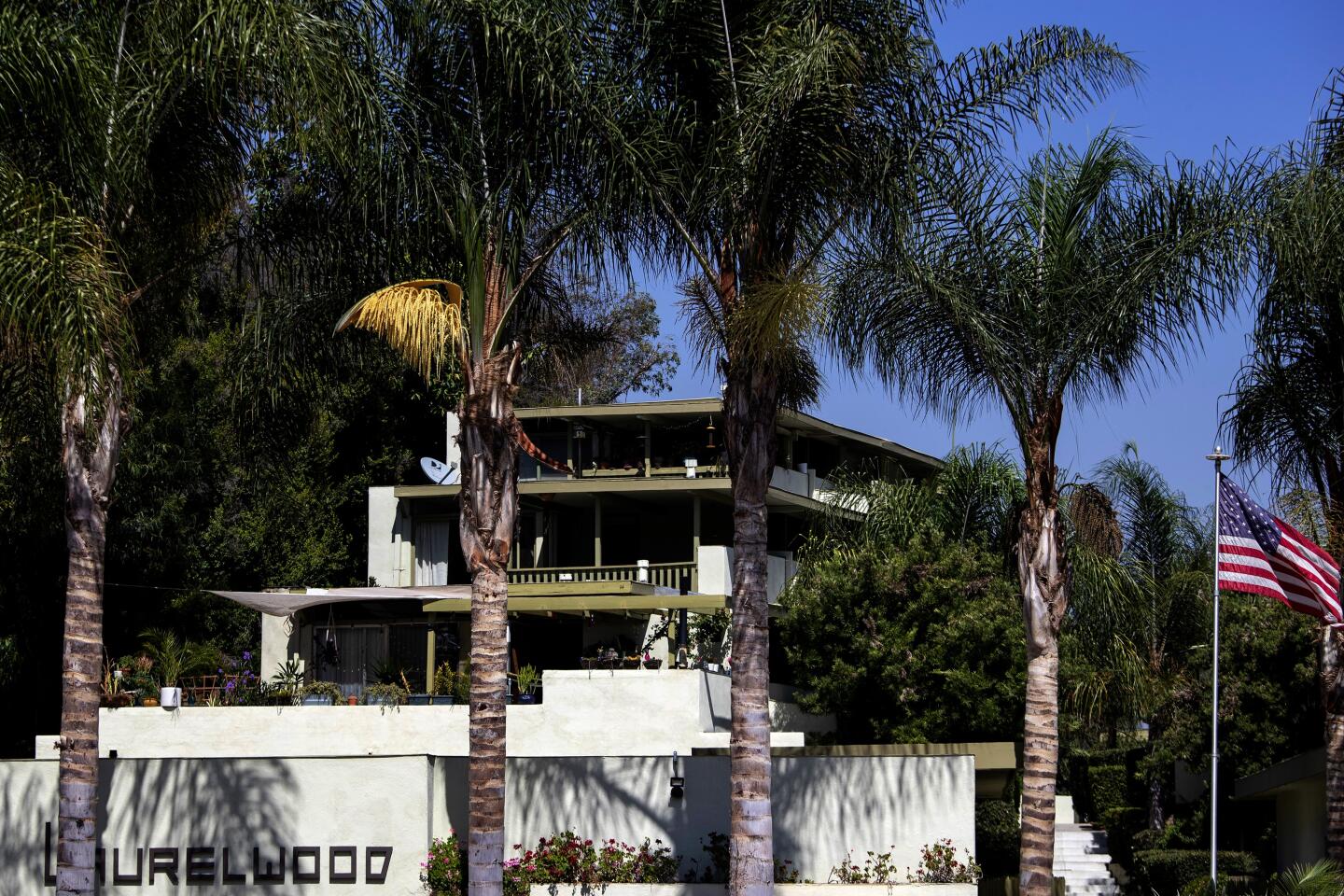Four Hours: Brady Bunch house and Mulholland Drive: Studio City architecture tour
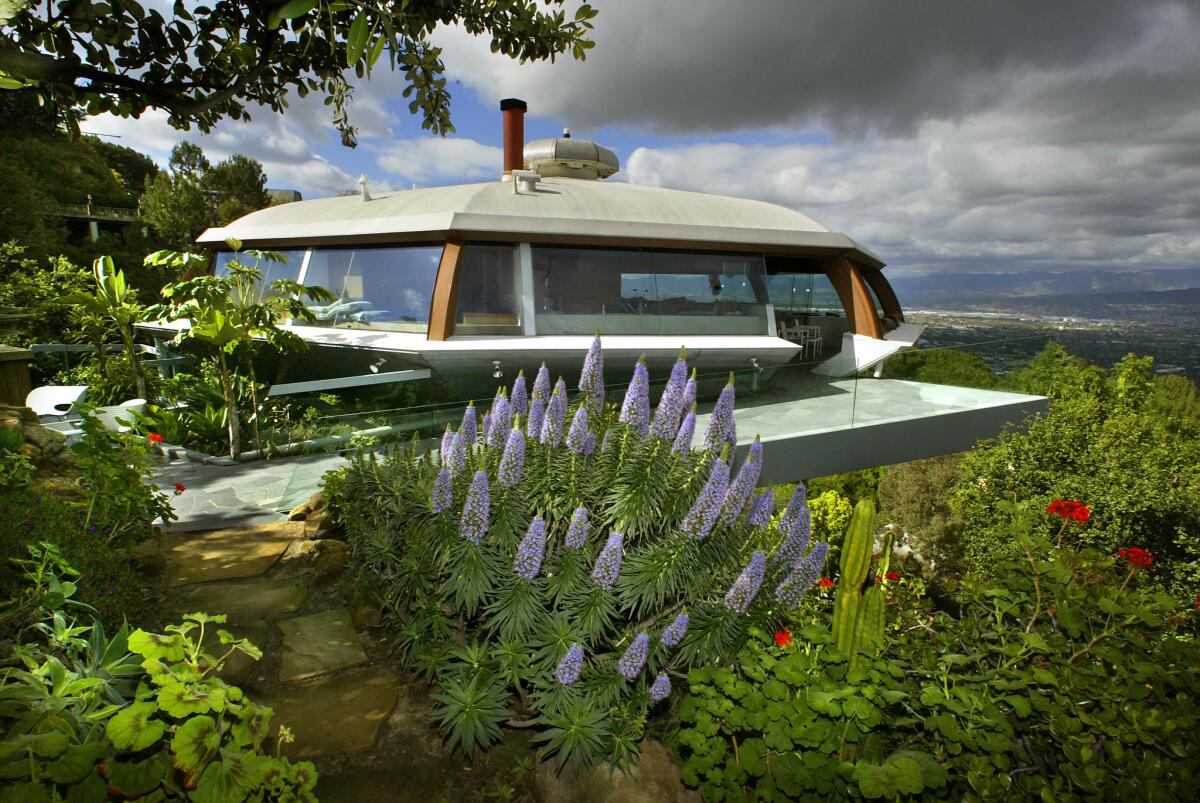
- Share via
Several years ago, after dropping my son at a friend’s house, I turned a corner along Torreyson Drive and stopped suddenly. There, floating above the trees in the Hollywood Hills, was one of L.A.’s most recognizable landmarks: the John Lautner-designed Chemosphere House. Similar jaw-dropping experiences are common in the neighborhoods in and around Studio City, where an invigorating blend of Los Angeles Cultural Monuments, Modernist masterpieces and pop culture icons offer endless opportunity for starstruck drive-bys. Revered architects including Lautner, Rudolph Schindler and Raphael Soriano all designed homes here, and their influence on California Modernism continues to resonate today.
Many of these homes are privately owned, of course, so keep your sight-seeing to the street. The owners of these homes are no doubt used to architectural buffs making pilgrimages to their neighborhood, but they surely don’t welcome strangers knocking on the front door asking for a peek inside.
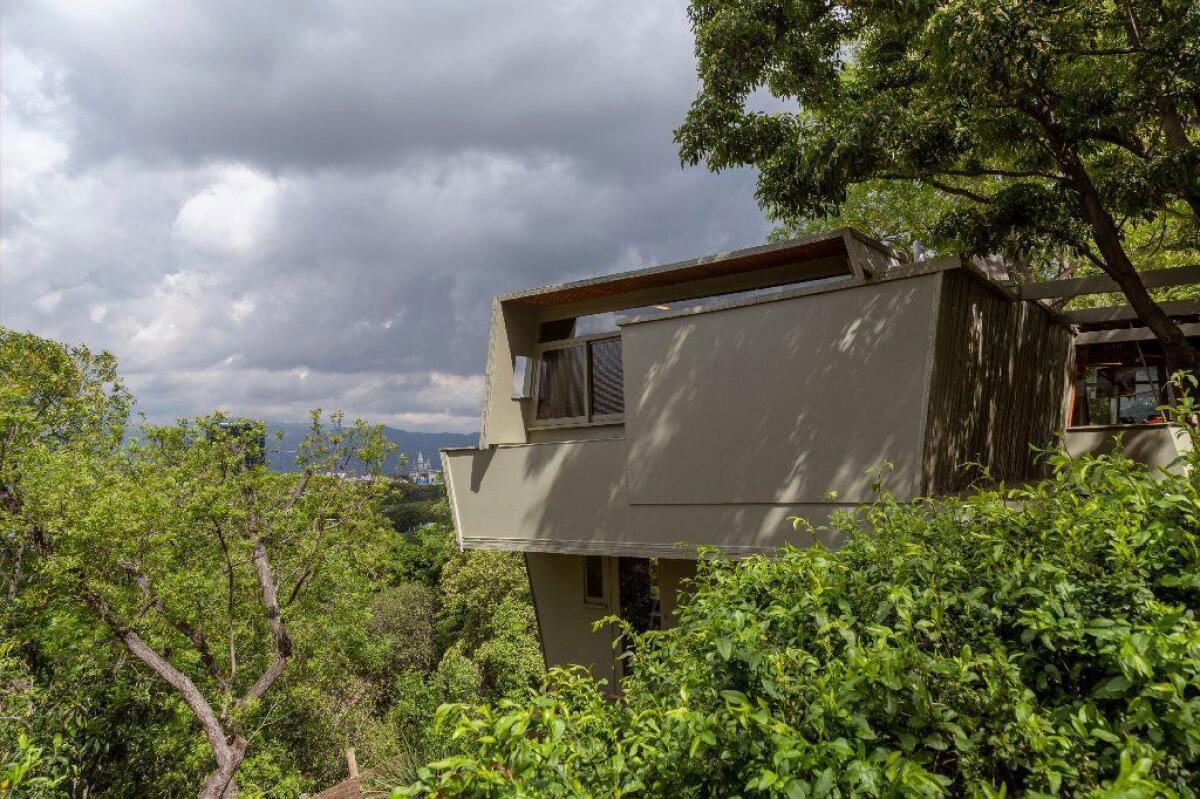
10 a.m. Begin your tour on Multiview Drive in the Cahuenga Pass, which is filled with a surplus of hillside homes that are under construction. R.M. Schindler’s Kallis-Sharlin House (3580 Multiview Drive) stands out, thanks to its unusual butterfly roof, clerestory windows and modest single-family home scale. Built in 1946 for Mischa Kallis, an art director at Universal Studios, the Los Angeles Historic-Cultural Monument was recently updated by architect Jeff Fink, who also restored the Schindler-designed Roxy Roth house about three miles away. In a 2013 review, the Los Angeles Times’ then-architecture critic, Christopher Hawthorne, noted that the home’s “Schindler Frame,” as his system became known, “gave the architect the freedom to experiment with canted ceilings and break away from the same steel box the Case Study program was at the time beginning to lionize. The clerestory windows in the Kallis House are appealingly idiosyncratic, less a continuous band of glazing near the ceiling than a way to frame the house’s own peculiar geometry.”
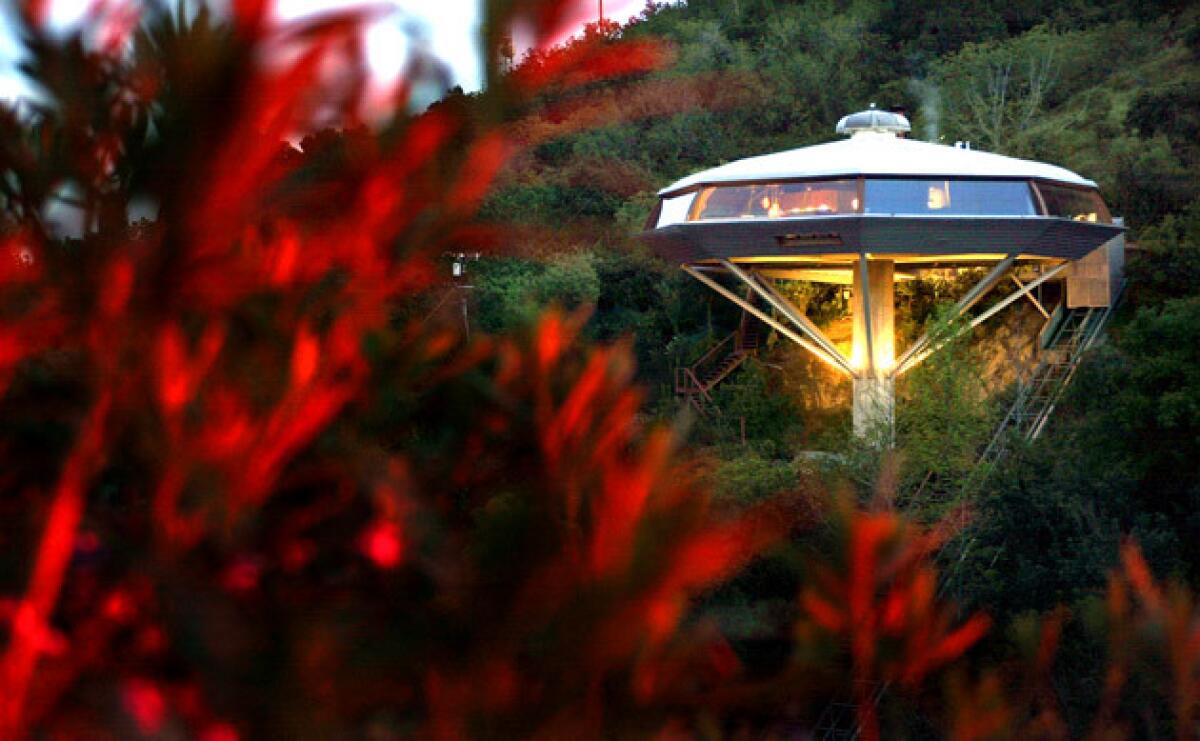
10:30 a.m. Continue up Multiview Drive until you reach Mulholland Drive. Turn right and head west toward the Universal City Scenic Overlook (7701 Mulholland Drive), which is on the north side of Mulholland and about a mile from the Kallis-Sharlin House. If parking is available, stop and enjoy the views of the San Fernando Valley, which are particularly breathtaking on a clear day and at night. Continue on Mulholland on foot, or by car, and head north on Torreyson Drive, site of Lautner’s Chemosphere (7776 Torreyson Drive). Proceed a block past the Chemosphere address, turn around and look up and you will be treated to an exhilarating glimpse of the spaceship-like house that rests atop a 30-foot-high concrete column and is accessed by a funicular. Another UFO-inspired dwelling is also visible from the street: Finnish architect Matti Suurone’s Futuro house (7764 Torreyson Drive), a prefab portable ski chalet made of plastic.
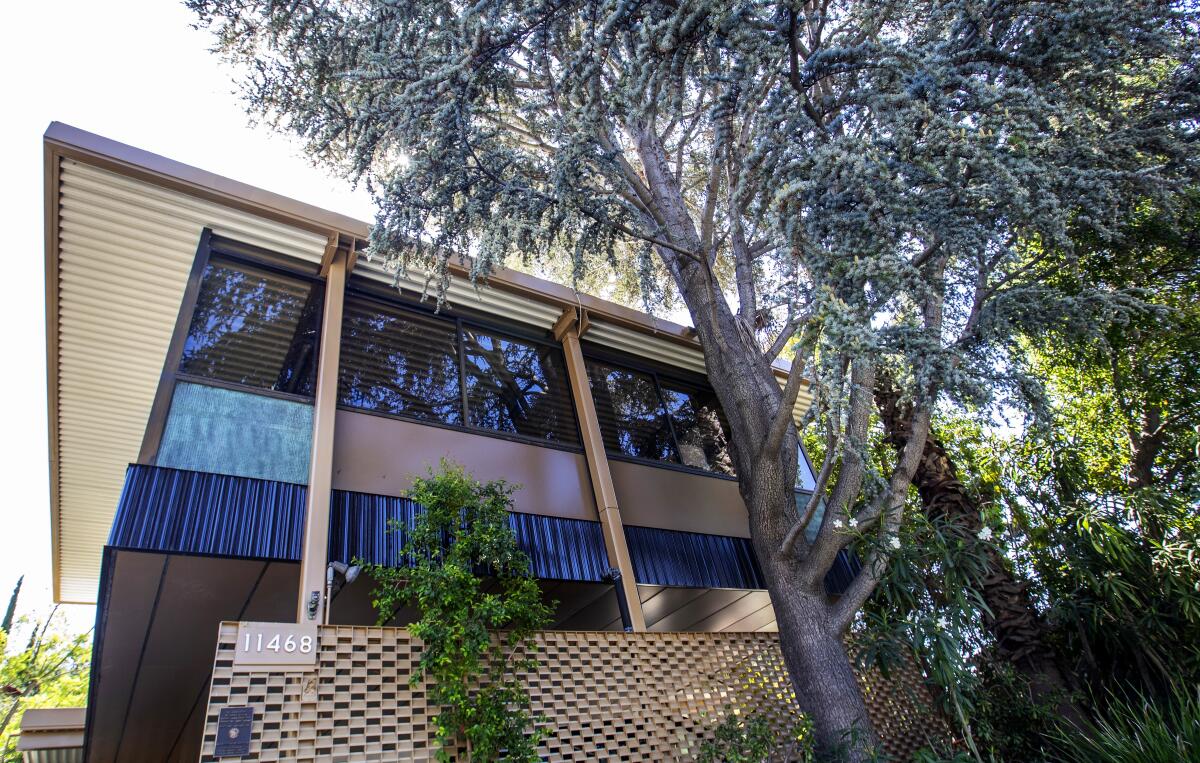
11:15 a.m. Follow the curves of Mulholland Drive to Laurel Canyon Boulevard and then turn right on your way to the Grossman House (11468 Dona Cecilia Drive), a timeless Midcentury Modern house that is also known as El Paradiso. Designed by Raphael Soriano, the aluminum and glass house was declared a Historic-Cultural Monument in March 1997 and is one of only 12 homes by Soriano that still exists. The four-bedroom home, considered futuristic when it was built, features an aluminum framework and 28 glass doors that arrived preassembled from a factory. “People today call houses modern if they have windows that close automatically,” owner Albert Grossman told The Times in 1996. “But this house, this is modern. Modern is not electronic.” He sold the house in 2016 for $2.5 million.
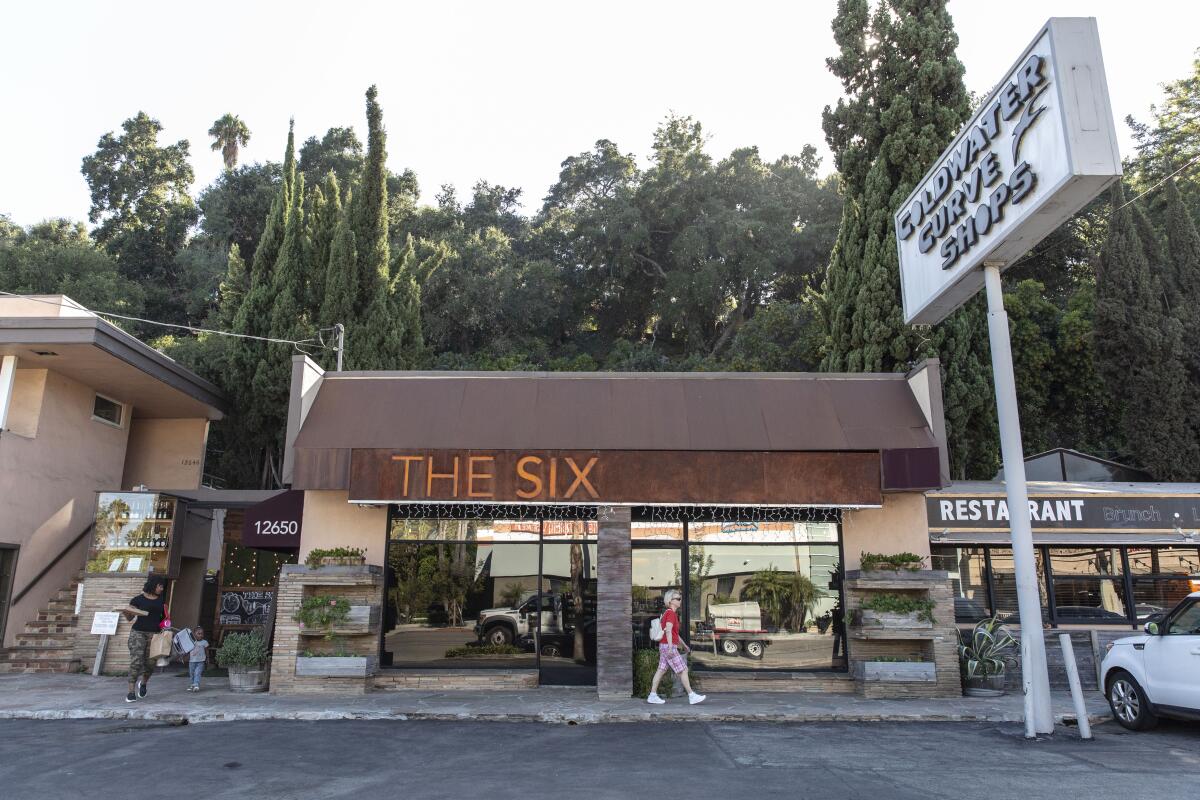
Noon Head down to Ventura Boulevard for lunch at the Six Chow House (12650 Ventura Blvd.), a bustling neighborhood “gastrobistro” featuring pizzas, burgers, sandwiches and salads. (You won’t be disappointed by the pizza with roasted peaches, prosciutto, burrata, balsamic reduction and basil.) The restaurant is in the Coldwater Curve row of shops, a small strip mall originally designed as the Lingenbrink shops by Rudolph Schindler in 1942. Imagine removing some signage and awnings, and its Modernist bones are apparent. According to the Los Angeles Conservancy, the buildings “retain their original display windows, flagstone block columns, and flagstone accent walls, some with built-in planters.“
If you’re a knitter, stop by La Knitterie Parisienne next door (12642 Ventura Blvd.), a friendly neighborhood knitting shop that offers free knitting lessons and floor-to-ceiling yarn, buttons and accessories.
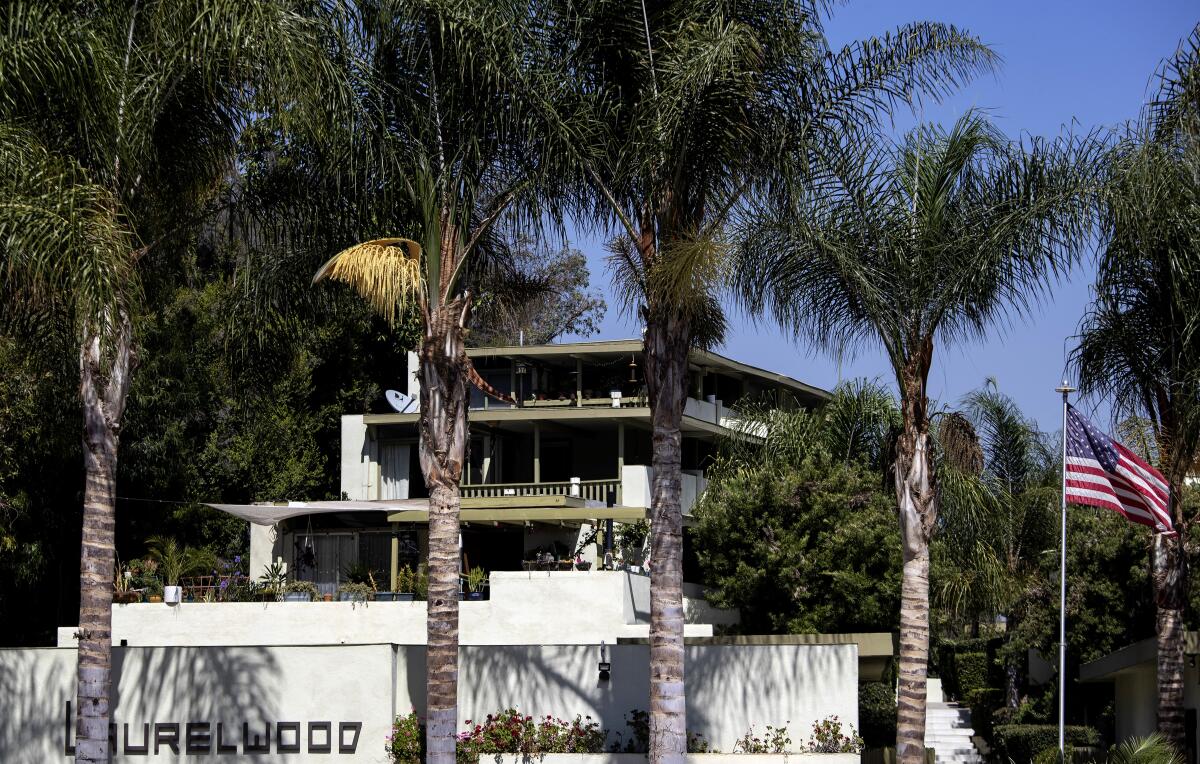
1 p.m. If it’s Sunday, pay a brief visit to the Studio City Farmer’s Market (2052 Ventura Place) en route to the Laurelwood Apartments, a 20-unit complex (11833 Laurelwood Drive) designed by Schindler and completed in 1949. Park and walk and absorb the details: inexpensive building materials such as grape stakes used as fencing, and private yards on the ground floor, something of a luxury for an apartment. The two-story flat roof hillside complex is considered Schindler’s largest completed work and is designated a Historic Landmark. The Los Angeles Conservancy calls Laurelwood “one of the finest Modern expressions of the ubiquitous courtyard apartment complex to be found anywhere in Southern California.” The units, rumored to be haunted, come up for rent on occasion: an apartment was listed at $2,848 when we visited in July.
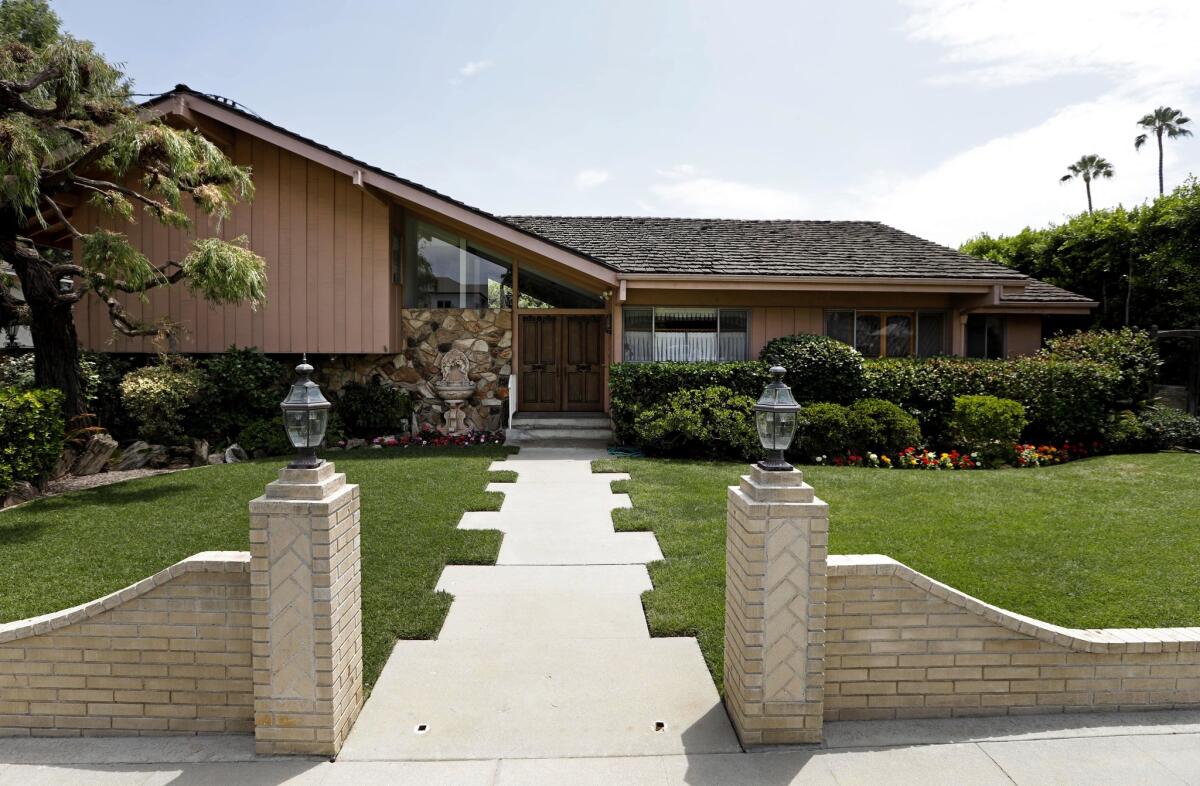
1:30 p.m. Complete your tour of historic landmarks with a lighthearted — but no less memorable — piece of pop culture known as the Brady Bunch House (11222 Dilling Street). HGTV purchased the 1959 split-level house in 2018 for twice the asking price and proceeded to remodel the interior of the home to resemble it as it was seen on television. (Only the exterior of the house was used for the show). In the wake of the remodel and the hugely popular TV show “A Very Brady Renovation,” the home is currently obscured by fencing, a move that feels unfriendly in the bucolic neighborhood. Even partially masked, however, the house is unmistakable and a thrill for fans of the show. Curious what it looks like inside? Take a 3-D tour at hgtv.com or watch the HGTV show “A Very Brady Renovation.”
More to Read
Sign up for The Wild
We’ll help you find the best places to hike, bike and run, as well as the perfect silent spots for meditation and yoga.
You may occasionally receive promotional content from the Los Angeles Times.

